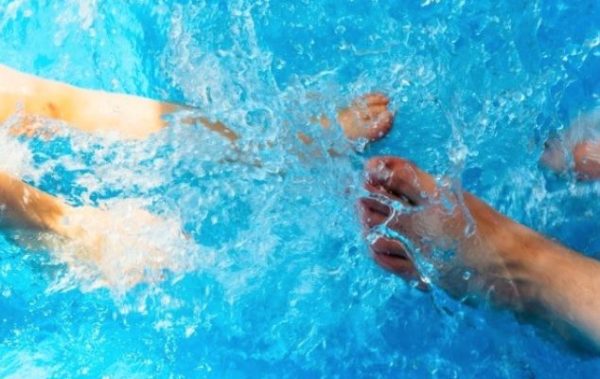
S*x is an intimate act between partners and many people like to experiment with different positions and locations outside the bedroom to keep things spicy.
One such place is the swimming pool. Many people find it exciting and adventurous.
However, before diving in, you may want to consider the health risks associated with pool sex.
1. Sexually transmitted diseases (STDs)
Sex in the pool is associated with increased risk of catching an STD. Even if you are using a condom, pool water can break down the materials within a condom, making it less effective against STDs and unwanted pregnancies. However, just swimming in the pool will not get you an STD, it can happen from engaging in sexual acts in the pool.
2. Dry vagina and genital pain
Water can dry out your vagina and wash away its natural lubricant. Without lubrication, sex can be painful and cause more friction – potentially creating microtears in the vagina, penis, or anus. Tears in genital areas can further increase your risk of STDs and nonsexual infections. A lack of lubrication can also lead to dyspareunia. Dyspareunia is defined as persistent or recurrent genital pain just before, during or after sexual intercourse. It usually affects women but can also occur in men.
3. Bacterial infections
Urinary tract infection (UTI) causing bacteria can grow in moist, warm environments. Pools can contain urine and feces, which will create a breeding ground for UTI causing bacteria. If your vagina is exposed to pool water, you may develop a UTI. These can also grow in moist bathing suits.
4. Affects vaginal pH balance
Chlorine is added in pool water to kill the bacteria in the water. However, chlorine can alter the pH balance of your vagina by also killing the healthy bacteria in your vagina, which play an important role in protecting the vagina from bacterial infections. When your vagina’s pH is drastically altered, it can also risk growth of fungus, potentially leading to yeast infection and other vaginal infections.
5. Risk of pool-related accidents
Activities like sex in the pool can increase your risk of pool accidents. These can be slips and falls, drowning, drain injuries, hair entrapment, and electric defects. Certain sex positions are also not safe in the pool. Any position that requires a partner’s head to be underwater should be strongly avoided.

